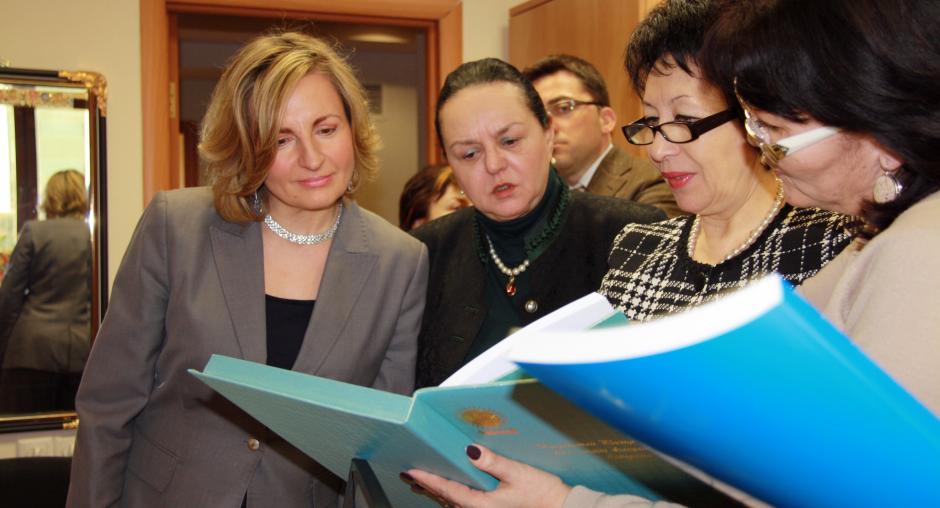OSCE anti-trafficking Co-ordinator sees positive developments during official visit to Kazakhstan

ASTANA, 4 April 2014 - The acting OSCE Co-ordinator for Combating Trafficking in Human Beings, Ruth Freedom Pojman, noted positive legislative and policy developments in preventing and combating this form of modern-day slavery at the conclusion of an official country visit from 1 to 4 April 2014.
"I welcome the government's recent decision to include the definition of exploitation in the amendments to existing legislation on human trafficking which has already allowed for the improved identification of victims and increased prosecutions of the perpetrators of this grave violation of human rights," Pojman said.
She encouraged the government of Kazakhstan to pay special attention to victim protection, including the development of a national referral mechanism to institutionalize co-operation between all necessary actors to improve the identification of victims of all forms of trafficking and their access to justice.
In this context, the Co-ordinator noted as a positive step the amendment to existing anti-trafficking legislation specifically providing victims access to social services.
The visit was carried out to strengthen the dialogue with high-level government representatives,, to engage with them and civil society in further increasing the priority given to combating trafficking in human beings, and to further support efforts to implement relevant OSCE commitments at the national level.
"I have been following anti-trafficking efforts in Kazakhstan for 13 years, and I have observed the dynamic growth of the anti-trafficking experience and practice, thanks to strengthened political will," Pojman said. "The increase in registered cases is an indicator of the improved effectiveness of the co-ordinated work of Kazakhstan’s leading agencies in the sphere of trafficking."
During her four-day visit, the OSCE Co-ordinator and the Deputy Head of OSCE Centre in Astana, Jeannette Kloetzer, met a range of key stakeholders from government and civil society including Foreign Minister Erlan Idrissov, Ambassador-at-Large for Human Rights Usen Suleimen, Vice-Minister of Justice Elvira Azimova, Vice-Minister of Labour and Social Protection of the Population Kairat Absattarov, the Chairperson of the Committee on the Protection of Children’s Rights, Raisa Sher, several supreme court judges, the Ministry of Interior and the General Prosecutor's office.
Pojman also met with representatives from a number of NGOs from across Kazakhstan. She concluded her trip by visiting a shelter for trafficked persons in Kokshetau.
"I was very impressed with the co-operation between government structures and civil society, which is critical to victim protection and to the prevention of trafficking," she said.
Pojman addressed a training of judges organized by the Public Administration Academy under the President of Kazakhstan, the US Embassy, the Supreme Court and the OSCE Centre in Astana. The OSCE and the Government of Kazakhstan are active partners in building the capacity of critical actors such as judges, prosecutors and police to enhance their ability to fight this serious crime, and to bring the perpetrators to justice.
